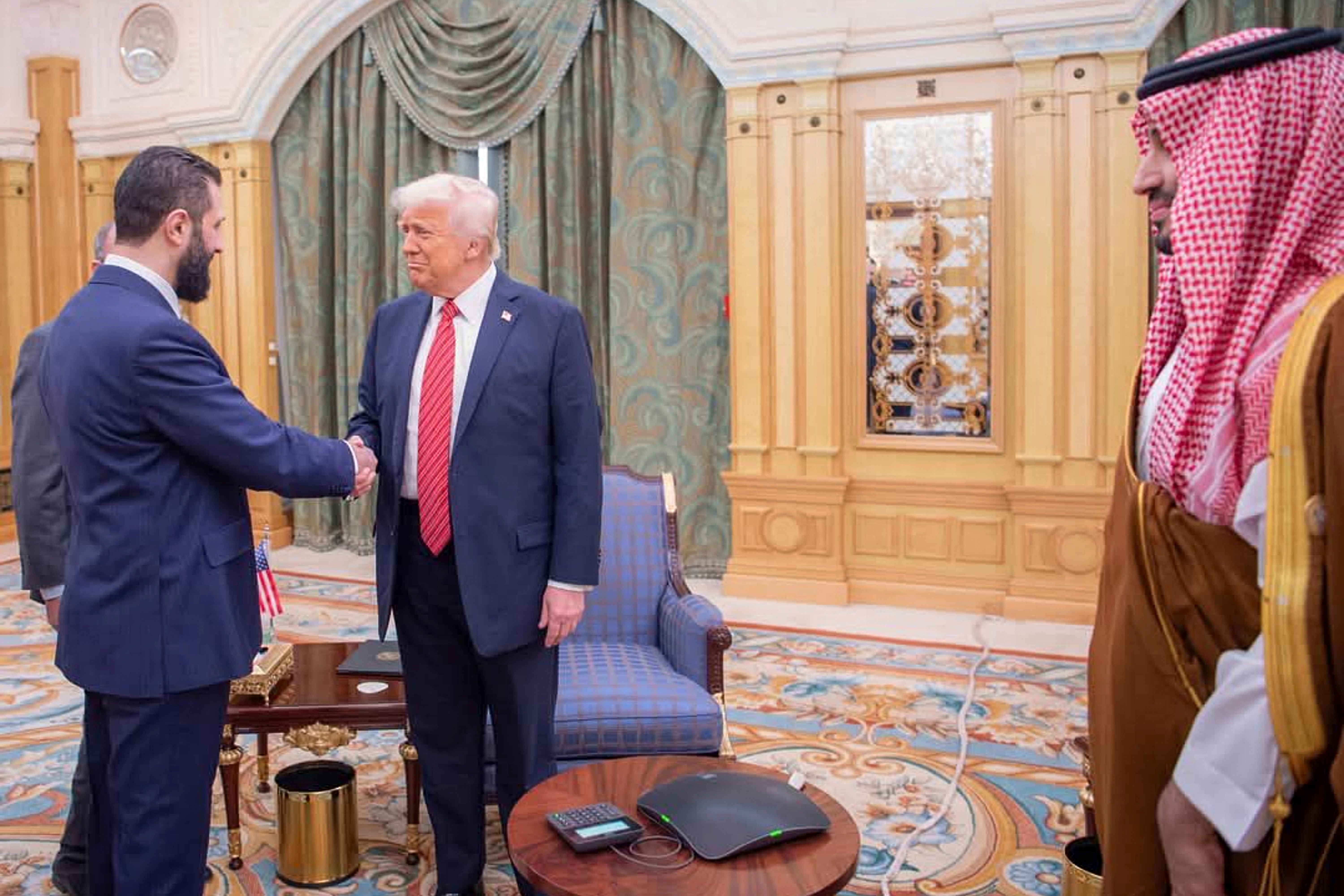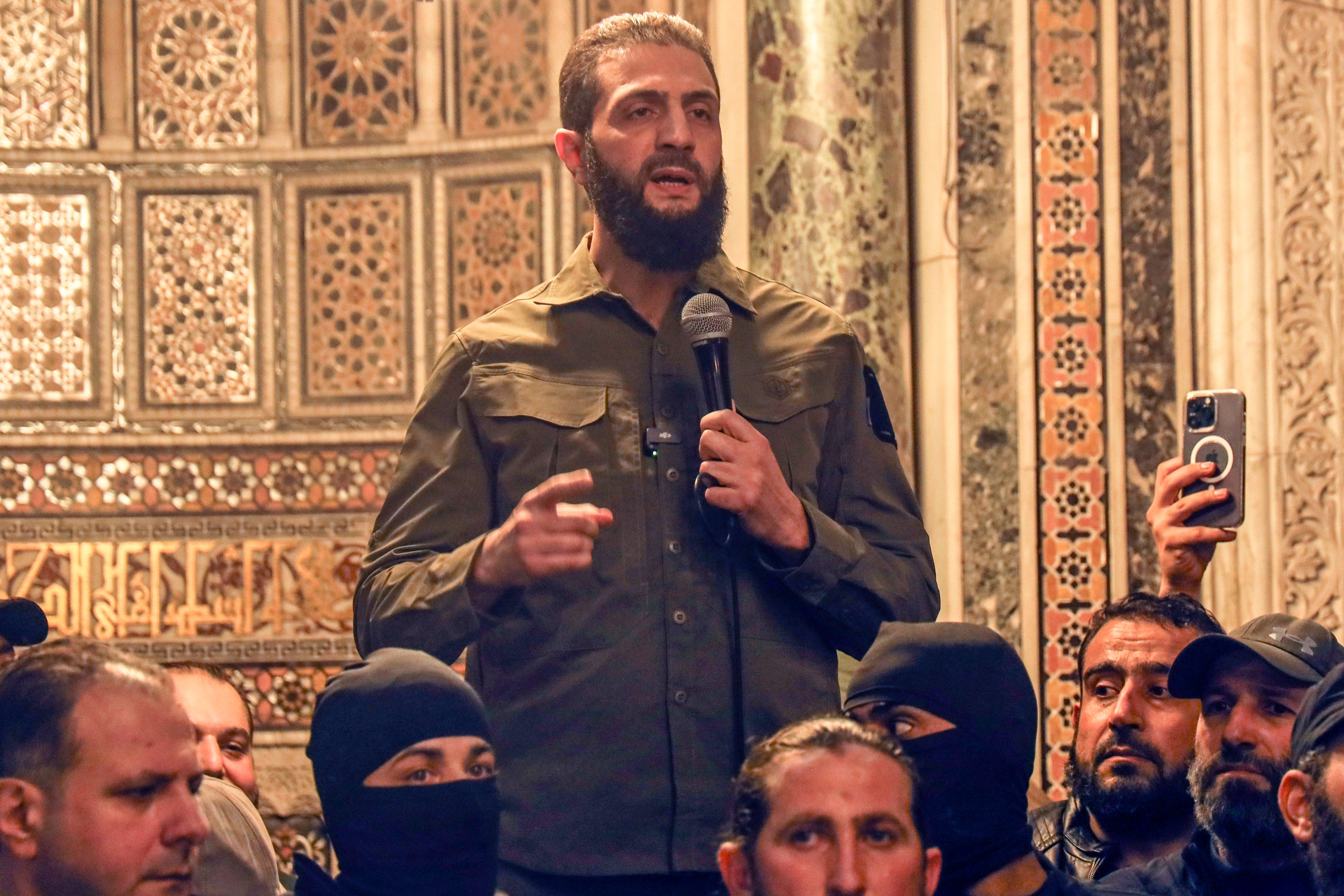ARTICLE AD BOX
Donald Trump may be facing historically low approval levels at home, but in Syria at least, his popularity is surging.
Celebrations broke out in Damascus and other towns across Syria on Tuesday after Trump announced that he would remove decades-old U.S. sanctions on the country.
With a stroke of his pen, the president delivered a lifeline to a country decimated by years of war, opening the long-isolated economy to the global market.
“He's a hero inside Syria,” said Qusay Noor, a Syrian journalist. “Everyone has been celebrating since yesterday until now. The atmosphere in Syria is very exciting.”

Some Syrians posted videos from the streets addressing Trump directly as fireworks blasted and people cheered in the background.
In his first term, Trump won the admiration of many Syrians when he became the first international leader to take military action against the country’s then-leader, Bashar al-Assad, after years of relentless bombing of his own people.
Trump ordered the strikes on Assad’s forces in 2017 in retaliation for a chemical weapons attack on the Syrian town of Khan Sheikhoun that killed more than 70 people.
“Bashar al-Assad launched a horrible chemical weapons attack on innocent civilians,” Trump said in a statement to the nation in April 2016 following the strikes. “Using a deadly nerve agent, Assad choked out the lives of helpless men, women and children. It was a slow and brutal death for so many. Even beautiful babies were cruelly murdered in this very barbaric attack. No child of God should ever suffer such horror.”

Trump’s decision to strike Assad came after then-U.S. President Barack Obama had drawn his infamous “red line” — threatening military action if the Syrian government used chemical weapons against its own people. When that happened, he sought congressional approval for a military strike against Syria, which he did not receive.
Trump’s popularity surged in anti-government areas of Syria following the strikes. Some eight years later, he is winning praise again for removing sanctions that threatened to hobble Syria’s chances of recovery after its long civil war.
“Trump is really different from other presidents. He doesn’t play with words,” Abdulkafi al-Hamdo, an English teacher and activist, told The Independent from Aleppo.
“If he says, ‘I don't want to help you,’ he means that. And if he says, ‘I want to help you,’ also, he means that,” he added.
Hamdo said that while he didn’t support Trump’s policy on everything, including Gaza and Ukraine, he believed he was better for Syrians than the American presidents that came before and after him.
“We didn't need promises. We didn't need crocodile tears. Tears were drowning us,” he said. “Trump took action when we needed action.”
The United States imposed sanctions on Syria decades ago under the rule of Bashar al-Assad’s father, Hafez. More were added after the outbreak of civil war in 2011 in response to the younger Assad’s mass killing of civilians in response to an uprising against his government.

With the removal of sanctions, Syrians will now be able to import from more countries, transfer money in and out of the country and work with international companies.
Trump announced the removal of sanctions on Tuesday during a visit to Saudi Arabia, ahead of a historic meeting with Syria’s President Ahmed al-Sharaa, who just a few years ago was the leader of the Syrian branch of al-Qaeda.
Saudi Arabia and Turkey, which both support Sharaa's government, had urged Washington to lift the sanctions.
Trump hailed the Syrian president as a “young, attractive guy” after the first meeting between the nations’ leaders in 25 years, and declared the removal of sanctions as the country’s “chance at greatness”.
The meeting marks a remarkable journey for the Syrian leader, who was the leader of a proscribed terror group during Trump’s first term and remains on the U.S. terrorist list.
Sharaa fought with the group in Iraq after the U.S-led invasion in 2003. He later led the Syrian branch of the terror organization that carried out the 9/11 attacks, before breaking away in 2016 to form what became Hayat Tahrir al-Sham, the group that ousted Assad.
Since coming to power in a blistering offensive last year that swept away the Assad dynasty after more than five decades in power, Sharaa has promised to deliver an inclusive government until free and fair elections can be held.
Ahead of his meeting with Trump, Sharaa was reportedly eager to offer the U.S. president preferential access to invest in the country in return for removing sanctions. Trump said that he pushed the Syrian leader to normalize relations with Israel.
Hamdo, the English teacher and activist, said he believes the removal of sanctions will mean that many Syrian refugees living outside the country will return home.
“Before these sanctions, many people were hesitating to go back. Now, they don't they will not hesitate anymore,” he said.








 English (US) ·
English (US) ·